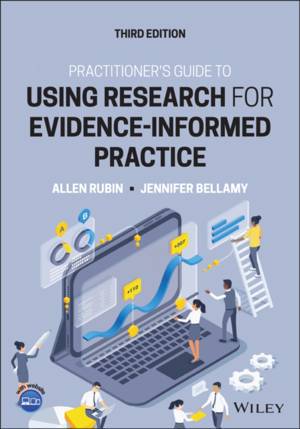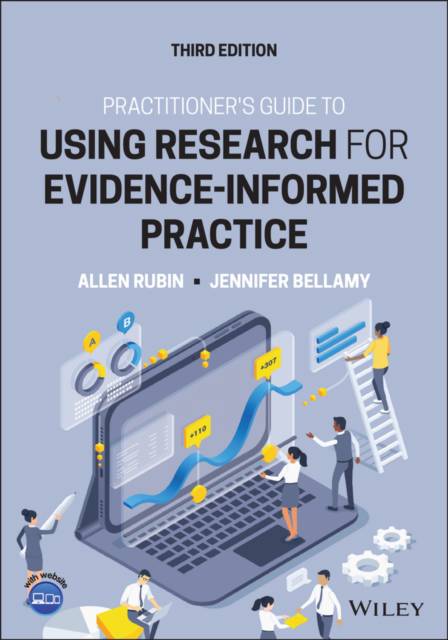
- Afhalen na 1 uur in een winkel met voorraad
- Gratis thuislevering in België vanaf € 30
- Ruim aanbod met 7 miljoen producten
- Afhalen na 1 uur in een winkel met voorraad
- Gratis thuislevering in België vanaf € 30
- Ruim aanbod met 7 miljoen producten
Zoeken
Practitioner's Guide to Using Research for Evidence-Informed Practice
Allen Rubin, Jennifer Bellamy
Paperback | Engels
€ 139,95
+ 279 punten
Omschrijving
The latest edition of an essential text to help students and practitioners distinguish between research studies that should and should not influence practice decisions
Now in its third edition, Practitioner's Guide to Using Research for Evidence-Informed Practice delivers an essential and practical guide to integrating research appraisal into evidence-informed practice. The book walks you through the skills, knowledge, and strategies you can use to identify significant strengths and limitations in research.
The ability to appraise the veracity and validity of research will improve your service provision and practice decisions. By teaching you to be a critical consumer of modern research, this book helps you avoid treatments based on fatally flawed research and methodologies.
Practitioner's Guide to Using Research for Evidence-Informed Practice, Third Edition offers:
Now in its third edition, Practitioner's Guide to Using Research for Evidence-Informed Practice delivers an essential and practical guide to integrating research appraisal into evidence-informed practice. The book walks you through the skills, knowledge, and strategies you can use to identify significant strengths and limitations in research.
The ability to appraise the veracity and validity of research will improve your service provision and practice decisions. By teaching you to be a critical consumer of modern research, this book helps you avoid treatments based on fatally flawed research and methodologies.
Practitioner's Guide to Using Research for Evidence-Informed Practice, Third Edition offers:
- An extensive introduction to evidence-informed practice, including explorations of unethical research and discussions of social justice in the context of evidence-informed practice.
- Explanations of how to appraise studies on intervention efficacy, including the criteria for inferring effectiveness and critically examining experiments.
- Discussions of how to critically appraise studies for alternative evidence-informed practice questions, including nonexperimental quantitative studies and qualitative studies.
Specificaties
Betrokkenen
- Auteur(s):
- Uitgeverij:
Inhoud
- Aantal bladzijden:
- 304
- Taal:
- Engels
Eigenschappen
- Productcode (EAN):
- 9781119858560
- Verschijningsdatum:
- 12/04/2022
- Uitvoering:
- Paperback
- Formaat:
- Trade paperback (VS)
- Afmetingen:
- 175 mm x 249 mm
- Gewicht:
- 612 g

Alleen bij Standaard Boekhandel
+ 279 punten op je klantenkaart van Standaard Boekhandel
Beoordelingen
We publiceren alleen reviews die voldoen aan de voorwaarden voor reviews. Bekijk onze voorwaarden voor reviews.











